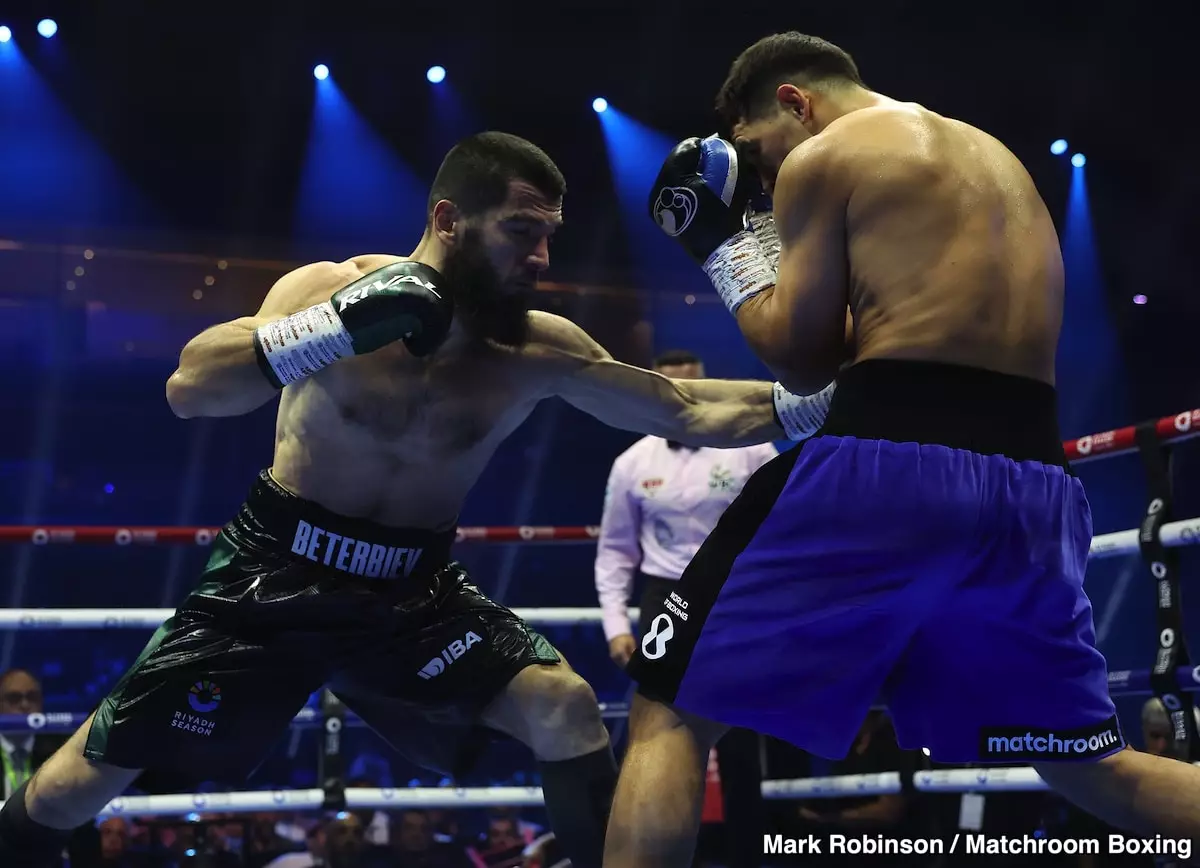In the realm of professional boxing, narratives can shift dramatically in the aftermath of a fight. The recent showdown between Artur Beterbiev and Dmitry Bivol has stirred a considerable debate about the necessity of a rematch. Beterbiev, who boasts an impressive record of 21 wins with 20 knockouts, bested Bivol through a majority decision after 12 uneventful rounds on October 12. However, the fight’s lack of excitement has left many fans and analysts wondering whether Bivol is deserving of another title shot.
Bivol, previously a WBA champion with a respectable record of 23 wins and only one defeat, displayed a defensive and passive fighting style that many spectators found disappointing. Rather than engaging in a thrilling contest that the boxing community anticipated, Bivol chose to rely on evasion tactics reminiscent of the less thrilling styles seen in some current fighters, leading to a fight that resembled more of a tactical analysis than a display of pugilistic prowess.
Criticism has been directed squarely at Bivol for his unwillingness to trade punches. While one could argue that his strategy was to avoid damage, the outcome was a lopsided viewing experience that did not fully utilize the talent and skills of either fighter. The fight, rather than showcasing a battle of wills, became an exercise in frustration, characterized by Bivol’s attempts to evade. Fans had invested significant anticipation into the bout, expecting a clash of titans, but what ultimately unfolded was a disheartening clip of strategic running that failed to engage and entertain.
Given this context, the question posed by Beterbiev to his followers—whether Bivol deserves a rematch—seems laden with merit. Traditionally, in boxing, fighters earn rematches through compelling performances that capture the audience or through displaying a fighting spirit that dictates excitement. Bivol’s strategy deviated from this norm, leaving him with a dual challenge: to win over fans and to earn respect from his peers.
Another layer to this saga is the emerging talent in the light heavyweight division. Beterbiev has hinted at a desire for a more engaging matchup, eyeing the winner of the upcoming bout between David Benavidez and David Morrell. These fighters possess a reputation for engaging styles that promise an electrifying showdown, contrasting sharply with Bivol’s recent approach. Boxing thrives on action, and in a sport where engagement is key, Beterbiev might be wise to focus on challengers who bring the kind of aggression and intensity that has been sorely lacking.
The unified champion’s inquiry hints at a crossroads not just for Bivol, but for the direction of the division. If he is unwilling or unable to adapt his strategy, he risks fading into the background while younger, hungrier fighters take center stage. For fans, boxing is about thrill, unpredictability, and actions inside the ring. Bivol’s last performance barely scratched the surface of those demands, potentially leading to his relegation to the sidelines until he can prove he belongs in the title picture again.
The allure of a Beterbiev versus Bivol rematch may not hold water in the eyes of most fans and boxing analysts. Instead, it seems prudent for both fighters to recalibrate; Bivol must refine his approach or willingly slip back into the ranks to earn his way back, while Beterbiev should pursue opponents who ignite the passion of boxing aficionados.

